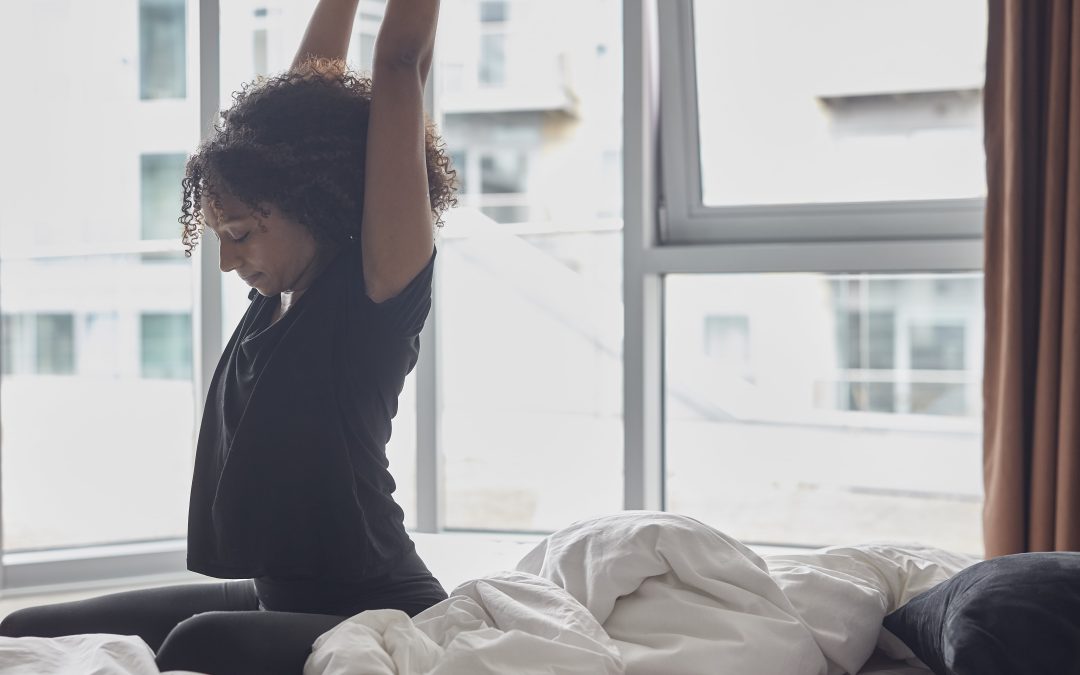We all know that exercise is beneficial to the body. The reasons to exercise are more expansive than just how we look on the outside. There are a whole host of health benefits that come alongside being more fit and active. Included in that list is sleep, as studies begin to show interesting links between the two.
Researchers aren’t 100% sure exactly what mechanisms occur that makes exercise improve your sleep. The relationship between the two is a little unknown. But there definitely is a link, and it’s well acknowledged that moderate-vigorous exercise can work wonders on your sleep in both the short term and the long term.
The most compelling evidence between sleep and exercise are the effects it has on those with insomnia. Across the world, a lack of exercise is associated with insomnia. Increasing physical activity is often prescribed as a way to help alleviate chronic insomnia. And it works. Those with insomnia who exercise regularly fall asleep 13 minutes quicker on average.
We all need to prioritise sleep to keep a healthy mind and body. Regular, good quality sleep isn’t something most of us get enough of. If we were ever in need of another reason to exercise, this is it. Here’s what it’s worth knowing about exercise and sleep.
Aerobic exercise increases slow-wave sleep
As you’re probably aware, not all sleep is equal. We go through a cycle of various sleep stages during the night, all of which offer our body some different restorative benefits. Slow-wave sleep includes stages 3 and 4. During this time, you’re sleeping at your deepest. These sleep stages are critical to the body and are when memories and consolidated, and the body is restored. The less slow-wave sleep you have, the more likely you are to feel tired and want to nap during the day.
If you exercise during the day, you’re more likely to have increased slow-wave sleep. Studies have found that both aerobic and anaerobic exercise benefit your deep sleep, leading to a greater feeling of restoration the next day.
However, it’s important not to exercise too soon before going to bed. Evidence suggests that the endorphins released during exercise might keep your mind active a lot longer than you want it to, increasing the time it takes you to fall asleep. Aim to keep at least 2 hours between exercise and bed to avoid it.
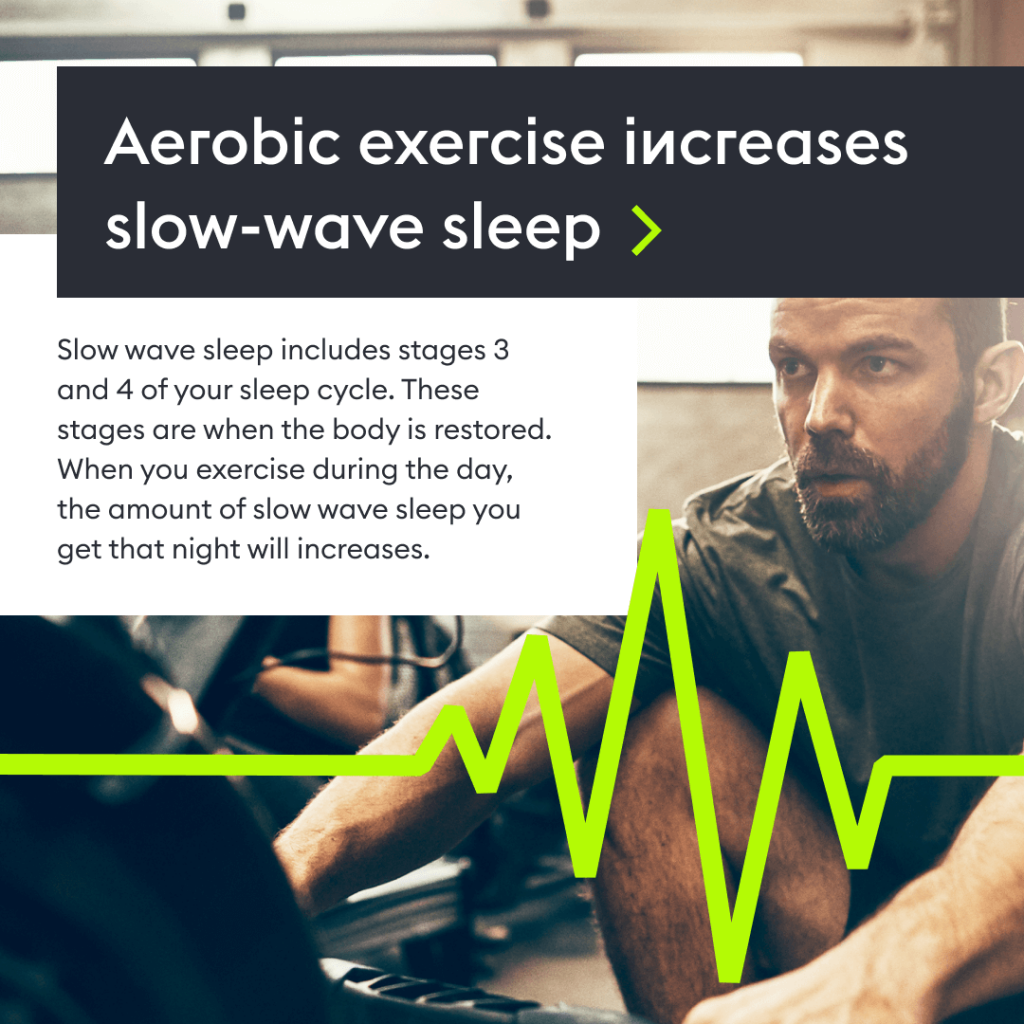
Exercise helps reset your sleep-wake cycle
If you’re in a weird cycle of sleep, exercise is an effective tool to help reset your sleep-wake cycle and get you back to feeling tired at the right time of night and refreshed by morning.
Your circadian rhythm is your body clock and will take you through a pattern of sleep and wake over 24 hours. Your body clock can be affected by several external cues, such as light. Controlling the light you’re surrounded by is a way to reset your circadian rhythm.
Studies have shown that exercise is also a tool you can use to do this. Daily exercise helps you to retrain your sleep-wake cycle a lot quicker than you would otherwise be able to. The exact mechanism behind this is still a bit unknown, but it might have something to do with the way your body temperature drops after you exercise in the same way it does before you fall asleep.
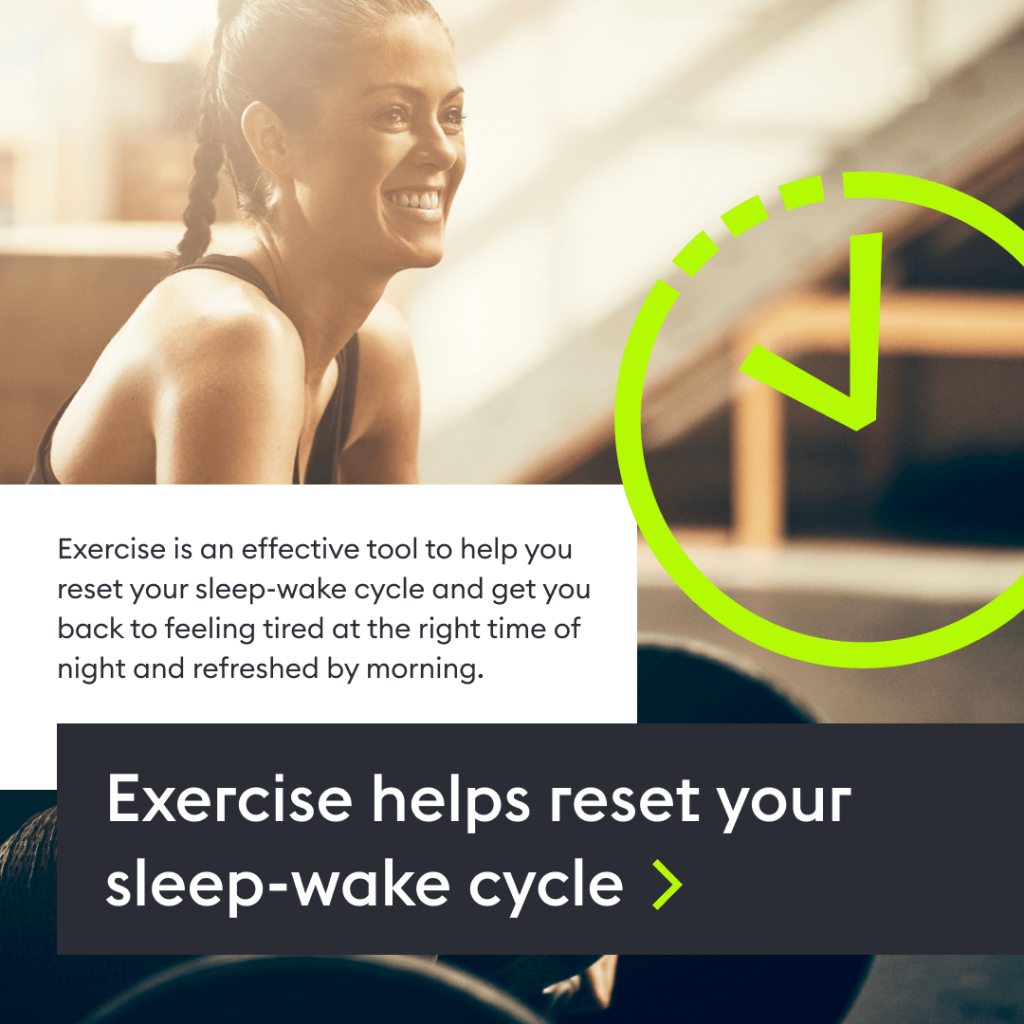
Habitual exercise helps you fall asleep faster
Exercise doesn’t just impact the night’s sleep you have immediately after. Getting into a regular exercise pattern helps you fall asleep faster and wake up less during the night in the long term. Even on the days you don’t exercise.
Waking up during the night is an issue that troubles many, as it’s often tricky to roll over again. By reducing the number of times this happens, you gain more restorative sleep than you might be used to.
Again, the exact reasons this happens haven’t been proven, but there’s an interesting indirect link attributed to stress that many researchers point towards. As we all know, exercise is proven to reduce feelings of both stress and anxiety. We also know that stress and anxiety are common culprits for lots of sleep issues. This indirect link feels like an obvious one when explaining why exercise might be beneficial in improving the night’s rest we get.
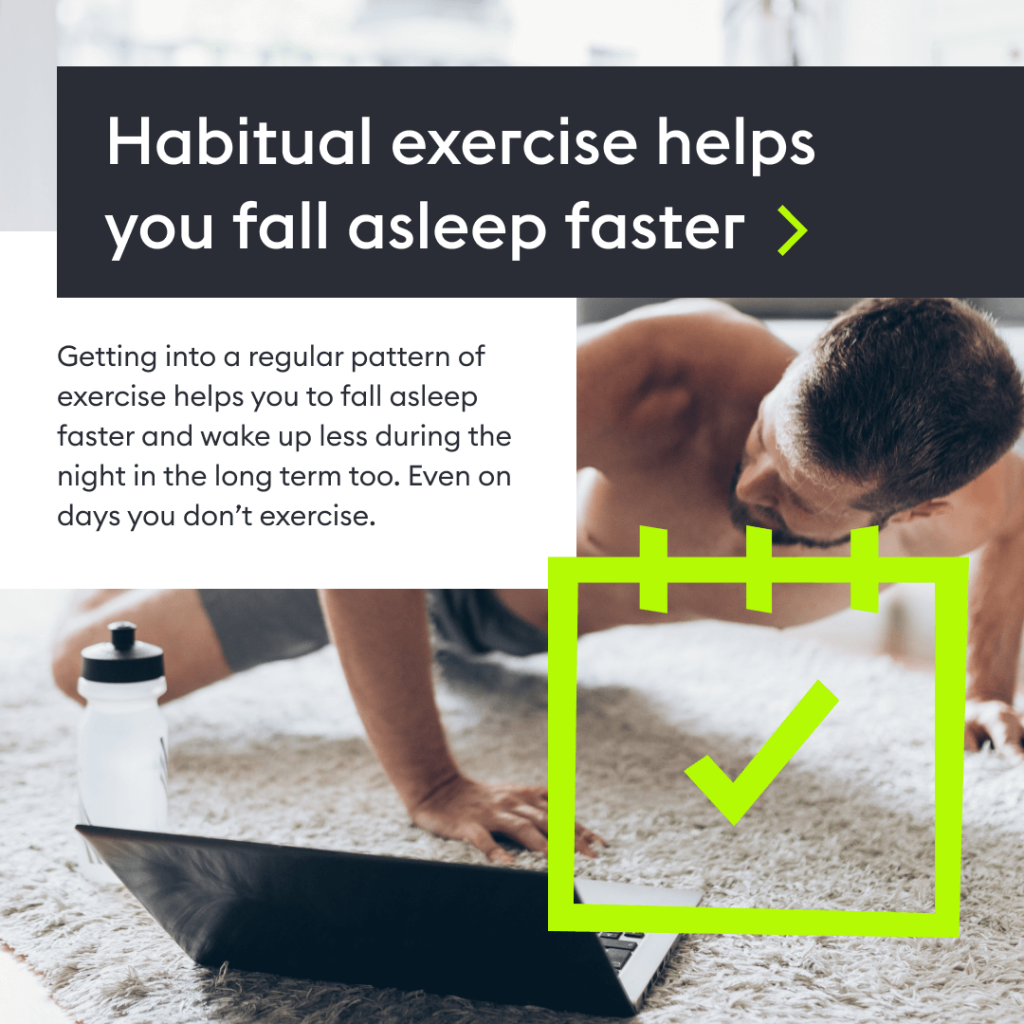
Resistance training helps with the quality of your sleep
It’s not just cardiovascular exercise that benefits your sleep either. Resistance training has been shown to play an important role too. In fact, a regular combination of the two might just have the most profound effects on the quality of your sleep.
Whether it’s because of the hormones released that make you feel more drowsy or because your body acknowledges it needs some restoration, a routine of both weight-based exercises and a cardiovascular element like running appears to be the key to a quality night of sleep.

Exercise for sleep and sleep for exercise
It’s during deep sleep that your muscles repair from any exercise-induced damage that’s occurred. Your body adapts to the workouts you do by repairing and rebuilding muscle fibres bigger and stronger than they were before. All these essential processes happen when you’re not awake.
It’s important to prioritise sleep after training to restore the body and replenish your energy supplies. It’s a two-way relationship, and that makes it worth investing in. To get a great night’s sleep, you’ve got to exercise. And to exercise at your best, you’ve got to get a great night’s sleep.
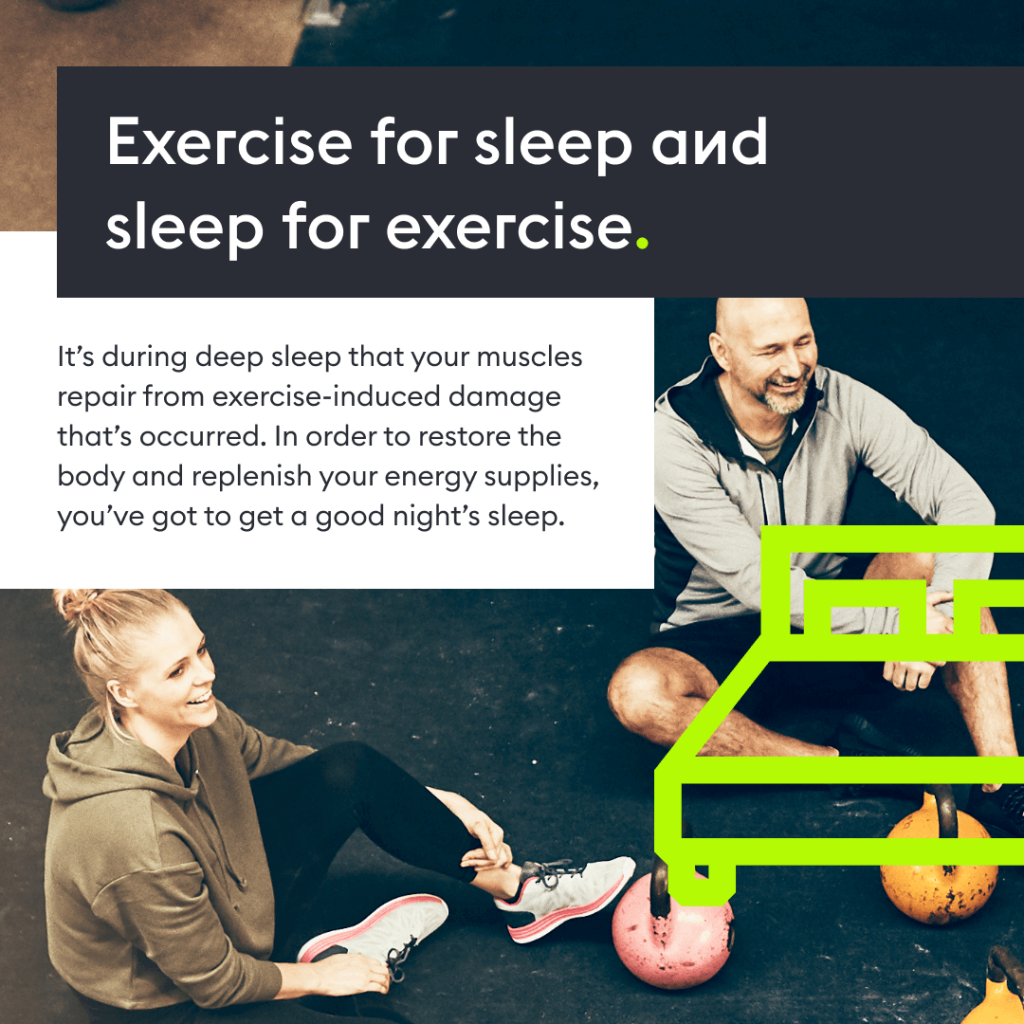
Health and wellbeing are all about understanding the various ways to look after the body. Lots of the things we do to live well are linked; exercise and sleep are no different. Prioritise both to look after your health and get yourself feeling great.

